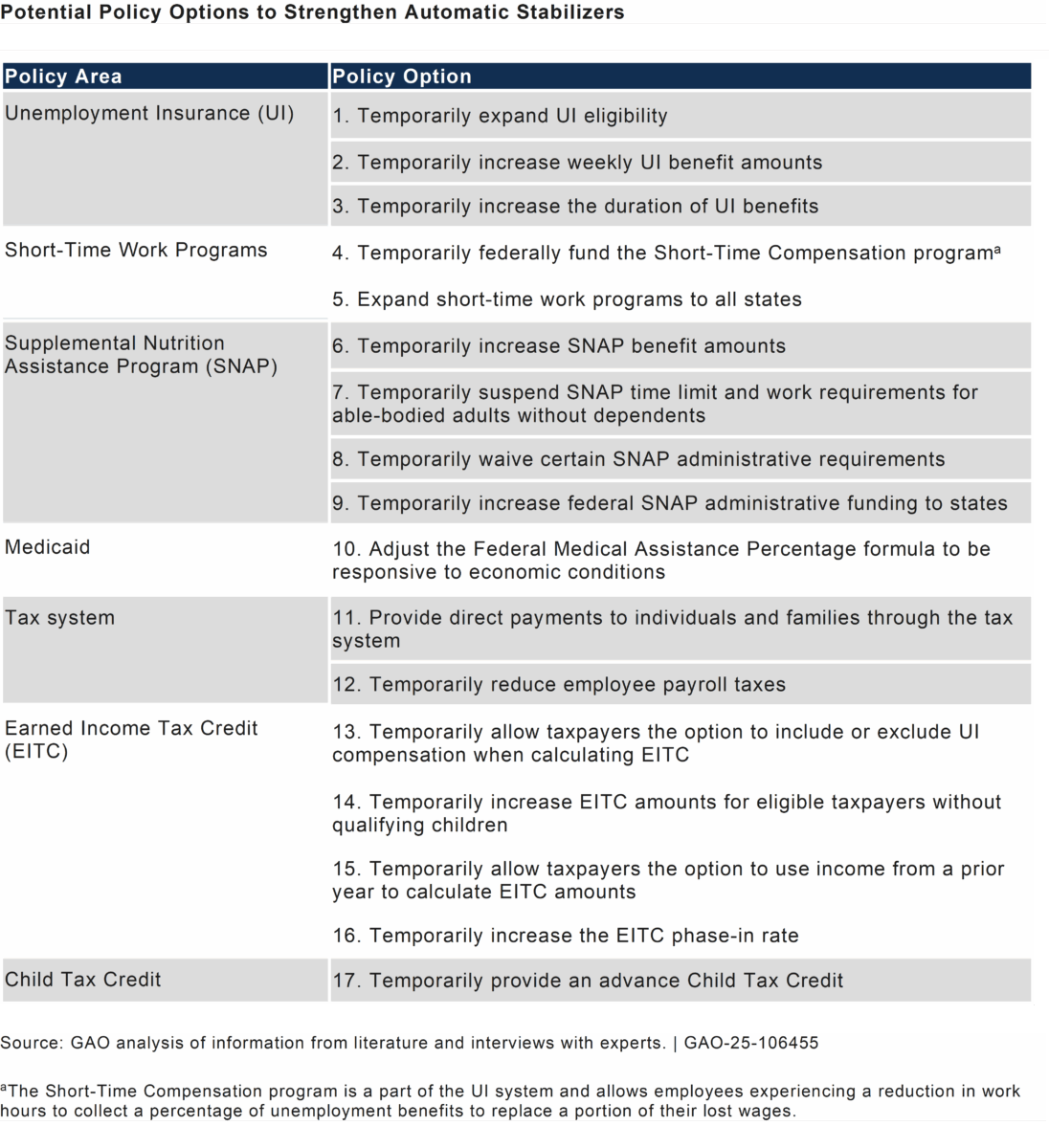I think we’ll need these sooner than you think. But legislation has just been passed to disable these supports.
GAO identified four principles that could be used to assess the design or reform of automatic stabilizers. Information from literature and economic and social policy experts suggests that effective automatic stabilizers are timely, temporary, targeted, and predictable. Within those four broad principles, GAO identified eight factors that contribute to the effective design of automatic stabilizers (see table).
To my knowledge, recent legislation goes the other direction, at least insofar as Medicaid and SNAP are concerned.
Entire report here.

“…effective automatic stabilizers are timely, temporary, targeted, and predictable.”
Yes, no (?), yes, yes. If, by temporary, the authors mean that stabilizers need to be triggered by humans, then “automatic” makes no sense. If a decision is required, then timely and predictable action is not assured, because the mechanism isn’t automatic.
If, instead, something like the Sahm rule is employed to dictate an increase in stabilization efforts, cool. That way, there’s no quibbling about whether to act; no politics.
I guess I should read the paper, but wouldn’t more extensive automatic stabilizers, paid for through taxes designed to cool the economy when times are good, without any special triggering mechanism, be just as effective? Maybe more effective?
Politicians – today’s politicians, anyhow – pursue growth at the expense of stability. Low taxes (mostly good for the well-off) and weak public support programs (not so good for the poor) mean weak stabilization mechanisms. We know perfectly well that income and consumption taxes, food stamps, unemployment benefits, Medicaid and Medicare, Social Security and other benefits programs are counter-cyclical; not even up for debate. Strengthen those stabilization mechanisms, with inherent automaticity, then talk to me about some kind of specially-triggered temporary mechanism just for the bad times.
This just sounds like another case of giving up on good policy as not politically feasible. Policy experts should stick to recommending the best policy and let politicians decide what’s politically feasible. No more Larry Summers-type advisors.